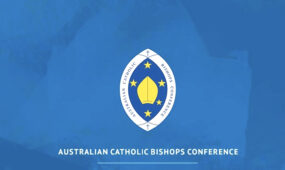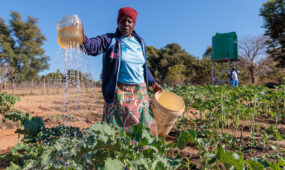A man and tome of many chapters
National
It’s a long way from kerosene hurricane lanterns on the farm near Pinnaroo to the bright lights and hustle and bustle of Ho Chi Minh City, but Father Jefferies Foale CP AM has taken it all in his stride.
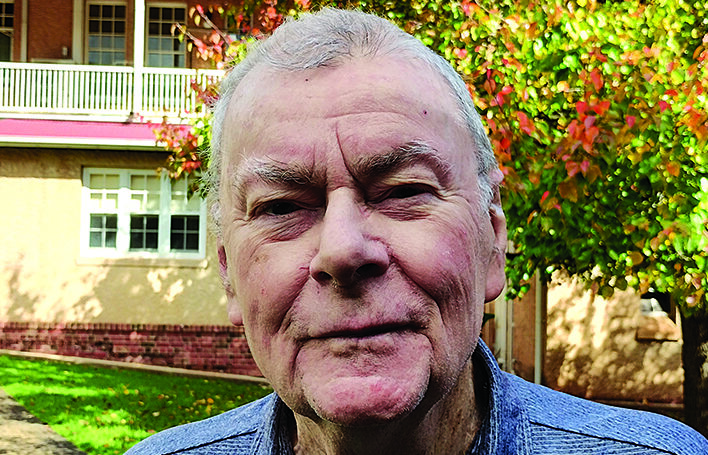
Last month was a particularly busy one for Passionist priest Fr Jeff Foale as he celebrated not only his 91st birthday but the launch of a book at the Vietnamese Catholic Community – a project he worked on for nine years.
Pierre Lambert de la Motte: The Father of Modern Missions is the story of the man who became the first Bishop of Vietnam, a country close to Fr Jeff’s heart and the place he now calls home.
Advertisement
“When I discovered the biography of Bishop La Motte in French I was hooked and set out to translate it in my spare time,” Fr Jeff (pictured) explained during a relaxed chat with The Southern Cross at The Monastery.
“I felt that the world needed to know the dramatic story of this steadfast visionary leader and lover of the Cross, who generously carried his own cross.
“At times it seemed like the translation from French to English was going to take forever, and it almost did!”
Many would consider taking on a project of that magnitude in your eighties to be slightly ambitious, however after spending some time chatting to the man who grew up on a farm near Pinnaroo, it is clear he has always been up for a challenge.
The fourth child and oldest boy in a strong Catholic family of 10 children – with the late Sr Marie Foale RSJ the oldest – Fr Jeff said life on the farm was hard but faith was central to their existence.
“We actually didn’t see much of Pinnaroo… growing up in the war years we only had enough petrol to get to town twice a month for Mass,” he said.
At 12 his life took a new direction when he “suddenly decided” to be a priest.
He completed secondary school in Sydney with the Passionists and took his first vows in 1953.
On March 8 1958 he was ordained a priest in Adelaide, taking on the religious name of ‘Fr Cletus’ and later reverting to ‘Fr Jeff’.
“The only thing Passionists ever dreamed of was preaching missions, so I was trained to preach missions,” he said.
His first year as a priest was spent training in writing sermons and public speaking. He preached missions around Australia, then volunteered with delight for the new Passionist Mission to begin in New Guinea, arriving in January 1961.
Over the next decade he established the Catholic Church’s presence in three locations, with Stone Age people under very harsh physical conditions.”
Advertisement
“The level of communication was utterly minimal, dealing with many different languages, but I would say Mass every day and soon set up a school and an aid post,” he said.
“I never imagined that I would do anything else in my life but I burnt out big time. It took me years to recover.”
The physical toll was due in part to his personal involvement in helping to build four airstrips in the remote locations. While three were “simple”, the fourth was a major undertaking.
“Thanks to Australian Catholic relief I was able to buy a tractor delivered in bits by the Mission Cessna to the nearest airfield 14 kilometres away,” he explained.
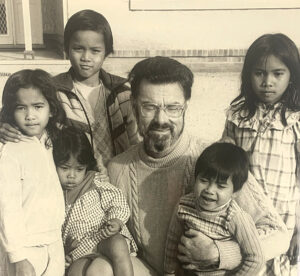
A picture which appeared on the front page of The Southern Cross in May 1984 of Fr Jeff with some children who were supported through the resettlement program.
“With incredible effort, the men of Kamberatoro carried it to us through the jungle. A volunteer mechanic came in and put it back together, adding a bulldozer blade. For a whole year a Dutch volunteer and I drove it every daylight hour until planes could land.
“In each of the places I served, I designed and built churches, classrooms, medical aid posts and houses, all made of raw unsawn timber straight from the forest, by totally untrained workers under my leadership. I taught them how to do truss roofs and was pleased to see that every house in each village was later constructed in that way.”
There are many fond memories of his time in PNG but one in particular led to the next phase of his ministry.
In the middle of the huge effort to build the Kamberatoro airstrip close to the Dutch border (later the Indonesian border), a party of 80 people walked onto the mission “looking very dusty, hungry and exhausted”.
“They were refugees, and they were running for their lives,” Fr Jeff said.
“I sheltered them in the mission school and we fed them. Then I walked to a neighbouring village for Mass, only to be devastated on my return next day to find that, on orders from Australian authorities, those unfortunates had been marched back across the border into the arms of the very people they had been escaping from.
“That planted something in me. That’s why I got involved with refugees here in Adelaide.”
Back in Australia and after regaining his health, Fr Jeff returned to Adelaide to look after the retreat house at The Monastery.
When the first Vietnamese refugees began arriving on our shores in 1975, he felt called to be involved in refugee aid and advocacy groups locally, nationally and internationally. He headed the Indo-China Refugee Association (ICRA), which later became the Australian Refugee Association, and often provided comments for the media on the refugee situation.
For several years he had a fruitful ministry among the Vietnamese Catholics in Adelaide, including blessing 20 marriages. He was involved in many other related groups in Adelaide and across Australia, including the Multi-Faith Association, which he founded, and the Refugee Council of Australia, where he served as president.
The Cambodian refugee crisis was also unfolding, and Fr Jeff believed it was time for the retreat house to be put to better use as part of the resettlement program.
With the green light given, the Monastery Refugee Project was established and from June 1980 to June 1984, 1154 Cambodian refugees were housed at the Passionists’ retreat house.
“On average they stayed about three months. One of the biggest issues we faced was their teeth,” he said.
“All the refugees had rotten teeth and you can’t be healthy with rotten teeth, so we had all these wonderful dentists volunteer their services, doctors also.
“We had a manager, a social worker, assistant social worker, and heaps of volunteer teachers teaching English, taking people to appointments. People from outside came and ‘adopted’ families, helping them get into a house and a job and kids into school.”
Every parish in Adelaide, not just Glen Osmond, was involved.
“It was a bit of a shot in the arm for the Archdiocese.”
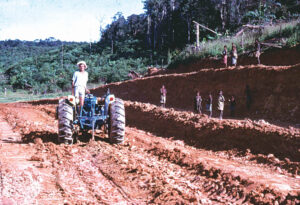
Fr Jeff Foale building one of the airstrips in PNG in 1969.
Appointed a Member of the Order of Australia in 1984 for his ‘service to ethnic welfare’, Fr Jeff continued to serve at an international level and attended several meetings at the United Nations.
In 1990 he was part of a three-person international delegation that went into Lebanon to assess the needs of the country following the end of the civil war. In 1993 he attended the United Nations World Conference on Human Rights in Geneva, speaking on behalf of refugee interest groups to an audience of 9000 people.
Every year he visited refugee camps in South East Asia, including Thailand, Malaysia, Hong Kong and Indonesia, fighting for admission of more refugees to Australia.
At the request of Archbishop Leonard Faulkner, Fr Jeff set up the Catholic Multicultural Office within the Archdiocesan administration and ran it from 1990-94.
His surroundings changed when he was elected to the Passionists’ international governing council based in Rome. His focus continued to be the Asia Pacific region, with occasional duties in Europe, US, Latin America and Africa.
Fr Jeff believes one of his major achievements in this role was researching and proposing a Passionist branch in Vietnam and being asked to lead it.
Since 2005, 15 indigenous priests have been ordained and there are currently 36 seminarians. Another three priests will be ordained at The Monastery next month, after spending a year in Australia serving as deacons.
One of the young men who joined Fr Jeff’s community in Vietnam to become a Passionist, Fr Paul Kien, recently commenced working as assistant priest to Monsignor Paul Minh Tam at Our Lady of the Boat People, Pooraka.
Planning to return to his base in Ho Chi Minh City this month, Fr Jeff said this was now his “home” and where he hopes to serve God for the rest of his days.
“I’ve just had these incredible new beginnings, starting a new life over and over, in going to New Guinea, in refugee service based in Adelaide, 12 years in Rome, and now Vietnam which has become my home,” he said. “My legacy, I hope, will be ‘I love life’.”
Pierre Lambert de la Motte: The Father of Modern Missions is available from ATF Press.





